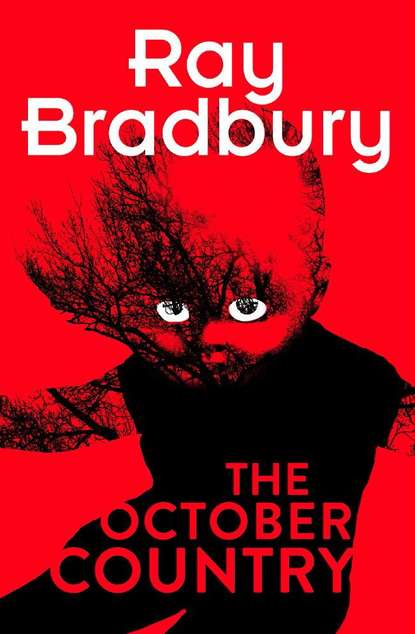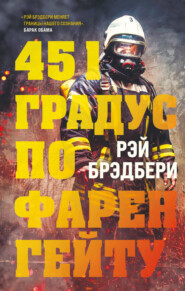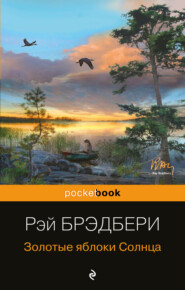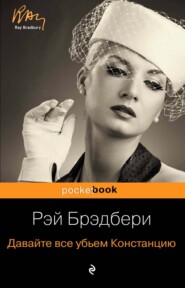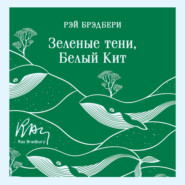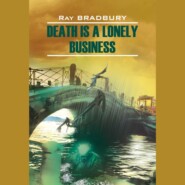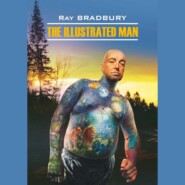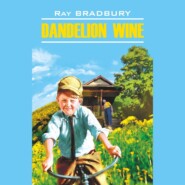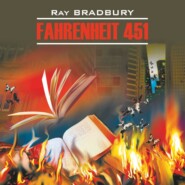По всем вопросам обращайтесь на: info@litportal.ru
(©) 2003-2024.
✖
The October Country
Автор
Год написания книги
2018
Настройки чтения
Размер шрифта
Высота строк
Поля
“Si, senor. Many more.”
“Wouldn’t want to be next in line, next on your waiting list.”
“Ah, no, senor, one would not wish to be next.”
“How are chances of buying one of these?”
“Oh, no, no, senor. Oh, no, no. Oh no, senor.”
“I’ll pay you fifty pesos.”
“Oh, no, senor, no, no, senor.”
In the market, the remainder of candy skulls from the Death Fiesta were sold from flimsy little tables. Women hung with black rebozos sat quietly, now and then speaking one word to each other, the sweet sugar skeletons, the saccharine corpses and white candy skulls at their elbows. Each skull had a name on top in gold candy curlicue; Jose or Carmen or Ramon or Ten a or Guiermo or Rosa. They sold cheap. The Death Festival was gone. Joseph paid a peso and got two candy skulls.
Marie stood in the narrow street. She saw the candy skulls and Joseph and the dark ladies who put the skulls in a bag.
“Not really,” said Marie.
“Why not?” said Joseph.
“Not after just now,” she said.
“In the catacombs?”
She nodded.
He said, “But these are good.”
“They look poisonous.”
“Just because they’re skull-shaped?”
“No. The sugar itself looks raw, how do you know what kind of people made them, they might have the colic.”
“My dear Marie, all people in Mexico have colic,” he said.
“You can eat them both,” she said.
“Alas, poor Yorick,” he said, peeking into the bag.
They walked along a street that was held between high buildings in which were yellow window frames and pink iron grilles and the smell of tamales came from them and the sound of lost fountains splashing on hidden tiles and little birds clustering and peeping in bamboo cages and someone playing Chopin on a piano.
“Chopin, here,” said Joseph. “How strange and swell.” He looked up. “I like that bridge. Hold this.” He handed her the candy bag while he clicked a picture of a red bridge spanning two white buildings with a man walking on it, a red serape on his shoulder. “Fine,” said Joseph.
Marie walked looking at Joseph, looking away from him and then back at him, her lips moving but not speaking, her eyes fluttering, a little neck muscle under her chin like a wire, a little nerve in her brow ticking. She passed the candy bag from one hand to the other. She stepped up a curb, leaned back somehow, gestured, said something to restore balance, and dropped the bag.
“For Christ’s sake.” Joseph snatched up the bag. “Look what you’ve done! Clumsy!”
“I should have broken my ankle,” she said, “I suppose.”
“These were the best skulls; both of them smashed; I wanted to save them for friends up home.”
“I’m sorry,” she said, vaguely.
“For God’s sake, oh, damn it to hell.” He scowled into the bag. “I might not find any more good as these. Oh, I don’t know, I give up!”
The wind blew and they were alone in the street, he staring down into the shattered debris in the bag, she with the street shadows all around her, sun on the other side of the street, nobody about, and the world far away, the two of them alone, two thousand miles from anywhere, on a street in a false town behind which was nothing and around which was nothing but blank desert and circled hawks. On top the State Opera House, a block down, the golden Greek statues stood sun-bright and high, and in a beer place a shouting phonograph cried AY, MARIMBA … corazon … and all kinds of alien words which the wind stirred away.
Joseph twisted the bag shut, stuck it furiously in his pocket.
They walked back to the two-thirty lunch at the hotel.
He sat at the table with Marie, sipping Albondigas soup from his moving spoon, silently. Twice she commented cheer-fully upon the wall murals and he looked at her steadily and sipped. The bag of cracked skulls lay on the table… .
“Senora …”
The soup plates were cleared by a brown hand. A large plate of enchiladas was set down.
Marie looked at the plate.
There were sixteen enchiladas.
She put her fork and knife out to take one and stopped. She put her fork and knife down at each side of her plate. She glanced at the walls and then at her husband and then at the sixteen enchiladas.
Sixteen. One by one. A long row of them, crowded together.
She counted them.
One, two, three, four, five, six.
Joseph took one on his plate and ate it.
Six, seven, eight, nine, ten, eleven.
She put her hands on her lap.
Twelve, thirteen, fourteen, fifteen, sixteen. She finished counting.
“I’m not hungry,” she said.
He placed another enchilada before himself. It had an interior clothed in a papyrus of corn tortilla. It was slender and it was one of many he cut and placed in his mouth and she chewed it for him in her mind’s mouth, and squeezed her eyes tight.
“Eh?” he asked.
“Nothing,” she said.
Thirteen enchiladas remained, like tiny bundles, like scrolls.





